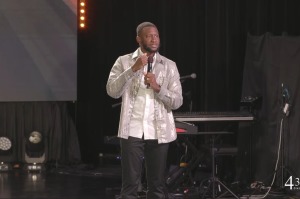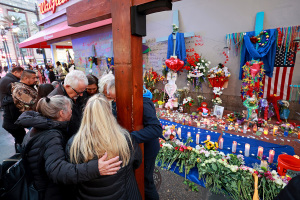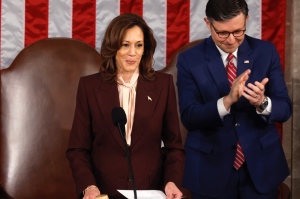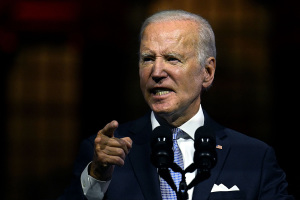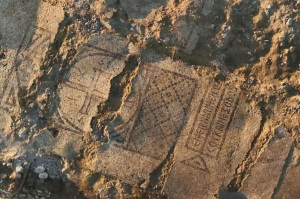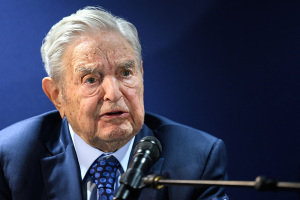‘Awaken the Dawn’ revivalist talks new book, if prophetic dreams still happen
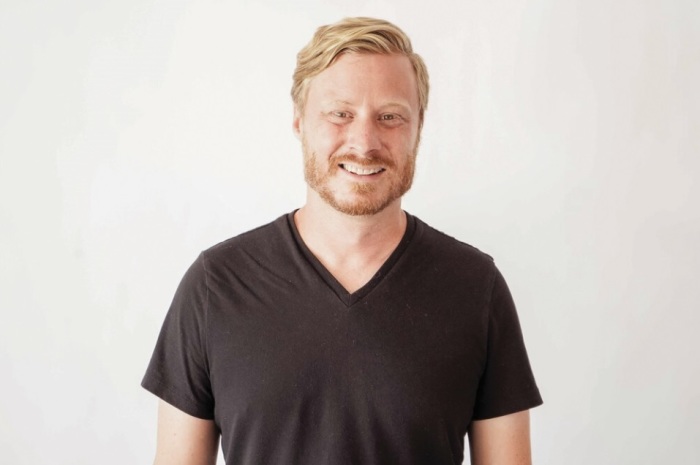
In October 2017, tens of thousands of people gathered at the National Mall in Washington, D.C., to participate in a weekend-long, 24-hour praise and worship event.
Known as “Awaken the Dawn,” the revival gathering featured praise bands from across the United States meeting in 58 tents set up in the nation's capital.
It also led to multiple follow-up events in D.C. and elsewhere, and the creation of an organization of the same name that champions 24/7 worship experiences across the country.
David Bradshaw, a Virginia pastor who helped organize the event and founded the ministry created in response, has written a book about the event and his ongoing efforts to spread revival, titled Awaken the Dawn: An Adventure in Hosting Jesus’ Presence and Discovering Your Part in the Story.
“A movement of day-and-night worship, prayer, creativity, and mission is impacting America and the nations by bringing the presence of God into our cities and campuses,” wrote Bradshaw in the book's introduction.
“Jesus is leading a procession of great awakening, which in the coming days, months, and years will fill stadiums, impact campuses, reach nations, and create an environment for miracles.”
The Christian Post talked with David Bradshaw about his new book and the overall Awaken the Dawn movement. Below are excerpts from that interview.
CP: What led you to write this book?
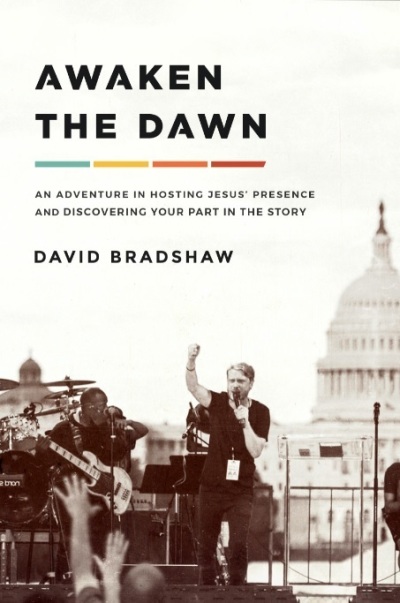
Bradshaw: Specifically, I felt a burden for this next generation to really be equipped to host the presence of God and to interact with Him as a central focus of their life.
I felt like that’s been a message that’s been carried over many years by many mothers and fathers, but that there needed to be a fresh invitation to the next generation to take up that calling, to take up that focus, and really root it in the belief that Jesus’ personal presence is the key to transformation.
Then secondly, there’s just been an amazing story over the past number of years that we’ve experienced and seen and to share that testimony, I believe, inspires faith for individuals to walk into what God has for them.
CP: In Chapter 1, you wrote, "God is inviting us to break free from our spiritual hamster wheels of systemic religious activities that can cause us to mistakenly think God is present when we're really just hearing a lot of noise." What do you believe are some specific examples of "spiritual hamster wheels" that are common in American Christianity?
Bradshaw: I think one is living independent from our life of prayer and intimacy with God, meaning lots of religious activity and not a lot of interaction with God directly. And not just as individuals, but also as groups and churches and communities, and as organizations.
I think in America, we’ve been blessed with a lot of resources, and because we have so many resources, we have large organizations with large infrastructures in ministries, and I think there’s a subtle but profound temptation to lean on that, to rely on that, and to focus primarily on that instead of a primary focus on knowing, experiencing, and walking intimately with Jesus as communities. And I think that’s the culture of the book of Acts and I think the Lord is desiring to restore that and to really invite us to return to that.
I believe that the “hamster wheel” in many ways is reflected by that self-effort and that focus on our external organizational, programmatic elements as a primary focus in an all-consuming way that actually causes us to spin our wheels in human strength and not produce real, lasting change.
CP: You discussed the planning that went into Awaken the Dawn 2017, which involved 58 tents for around-the-clock worship at the National Mall and brought tens of thousands of people to D.C. What would you say were some of the biggest challenges that you had in organizing this event?
Bradshaw: Honestly, I think unbelief in my own heart was a challenge. Aside from all of the obvious logistical challenges, I think the real struggle was that we believed the Lord had led us to do this, that He had spoken to us, and that He was a part of that process, and that was a very clear element of why we were doing what we were doing.
But, quite frankly, nothing like that had ever been done before. We were gathering tens of thousands of people and thousands of musicians that needed to come on their own dime to fill these tents 24/7. This had never been done; there really wasn’t a prototype for that kind of gathering. And so it required a real trust and a real faith in the process of mobilizing and facilitating what transpired there.
So we really do give credit to the Lord for His faithfulness in that. Because God really did come through. So I think the biggest challenge for me was walking out that journey of believing God and what we felt He had led us to do very clearly. And of course, working hard and building it organizationally was challenging; logistically it was challenging. But I think the core challenge was to stay in that place of faith, looking at apparent impossibilities.
That’s part of what the book is about: encouraging people to follow what God is leading them to, even in spite of apparent impossibilities or obstacles.
CP: In Chapter 9, you spoke about Christians needing to have a "wilderness" place for which they could develop spiritually. How do you make that wilderness space possible in a busy, constantly demanding and distracting world like the modern United States?
Bradshaw: I think it takes a constant, daily recommitment. Not in a striving posture or in a condemning way, but in a faith-filled way. It’s that posture of saying, “I’m going to keep my conversation with God a top priority in my life.” And that’s what I see in Jesus’ teaching in John 15 where He said, “abide in me, and you will bear much fruit.”
That abiding, from my perspective, involves staying in that conversation with Him as a primary focus of your life.
And so in my opinion, it's making the commitment every day without condemnation how you have not done it well. I think you could do both of those. Stay connected, but don’t condemn yourself when you struggle, because everyone else is struggling too.
CP: How did the COVID-19 pandemic impact the Awaken the Dawn mission?
Bradshaw: It did impact us quite a bit.
One of the advantages we had was that one of our primary strategies is tents, which happens to be outdoors and most of the gatherings are medium-sized or small gatherings spread out across the whole nation. And so because of that, it was easier to facilitate in the context of a pandemic than other kinds of gatherings. For example, indoors or potentially a mass gathering. And so that was a real blessing for our movement to be able to continue to function that way.
And then secondly, we did pursue quite a few online options. In fact, we had a 24/7 prayer initiative via Zoom from groups across the nation that we facilitated during that time, and so there were a number of other steps that we took.
Even though it was a profound struggle, we also felt encouraged through the pandemic that God is giving strategies and wisdom that are moving us forward even amid the crisis.
CP: In many places in the book, you spoke of yourself and others being guided by God through prophetic dreams and visions. How do you respond to fellow Christians who might be skeptical that God still speaks to people through dreams in the modern era?
Bradshaw: Number one, I would point to the Scriptures because, from my perspective, it’s evident there that God continues to speak through dreams and visions.”
I would also say, I don’t see that as a primary source of guidance in our life. I see it as a secondary source. Primarily, it would be the scriptures, and then wisdom, from wise counsel, would be very significant, but I believe the scriptures just indicate that and history of the church has testified to profound dimensions of dreams and visions being part of the outworking of God’s plan.
















